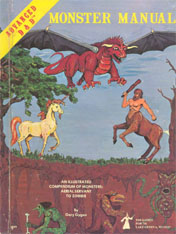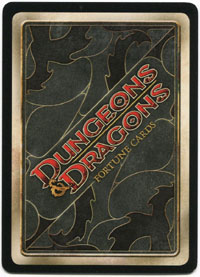This is something I started touching on a couple of days ago, but I decided it would be better served if left to stand on its own.
In the ’90s, the RPG industry embraced the supplement treadmill. Led by TSR, White Wolf, AEG, Pinnacle, and a host of others, publishers discovered that they could monetize their game lines by turning out a constant stream of supplements. If you’re cynical you can describe this as “greed”. If you’re realistic, you’ll realize that a lot of great games got produced and supported which would otherwise not have existed in a shrinking marketplace.
What most of these publishers realized was that player-focused content sold better than GM-focused content. (The simplistic explanation is that there are more players than GMs.) And that gives us the era of the supplement treadmill driven by splatbooks and the class books.
THE WRITING ON THE WALL
By 2000, however, there were clear signs that this supplement treadmill was a short-term solution that led to long-term burnout: Eventually you saturate your market (when your players have more options than they could play in a lifetime), and then the only solution is to burn it all down, revise your rulebooks, and start over again. After several cycles of this, for example, White Wolf eventually had to reboot the entire World of Darkness in an effort to restart their treadmill.
But, ultimately, this isn’t smart business: You’re needlessly tossing away thousands or millions of dollars in development costs every time you burn down your previous edition. And you’re risking alienating your customer base (or losing them altogether).
Right around this time, Ryan Dancey tried a radical new strategy for selling RPGs. The better known part of that strategy was the OGL, but let’s ignore that for now and focus on the other part of the strategy: Evergreen products. Dancey wanted WotC to get out of the supplement business and instead focus on the evergreen products — the products that produce significant sales for significant periods of time.
To cut a long story short, Dancey’s strategy failed: The first two evergreen products WotC launched (Psionics Handbook and Epic Level Handbook) were spectacularly poor in their design and landed with wet, dull thuds. So ’round about 2002, WotC discovered that their evergreen strategy wasn’t working and their B&W, softcover class supplements were being blown away in production value by third party developers.
So WotC did what every major RPG publisher had been doing for the last 15 years: They rebooted the rule system so that they could reboot their supplement lines. In 2003, 3.5 was released and it was followed by a line of full color, hardcover class supplements.
THE DILEMMA
Fast forward a few more years and WotC discovers that the market for 3.5 class supplements has become saturated: Their second (and third) passes through the core classes just aren’t selling as well as the first pass did. Cue the rules reboot.
And this is where WotC made several missteps which has badly fragmented their former market. I’m not going to dwell on that again, but I am going to make a couple of points here:
- As long-tail economics and the digital era lead to creative material being available in perpetuity, the viability of rebooting your rule system every couple of years in order to reset your supplement market becomes increasingly problematic. The old stuff is still available. (Even if you pull all your PDFs off the market, the used market has become global. And, of course, there’s also piracy.)
- WotC does not want to risk a repeat of 2008: I’m guessing they would like to do absolutely everything in their power to avoid a 5th Edition because it runs of the risk even further balkanizing their customer base.
I’ve seen many people describe WotC’s recent actions as “flailing”, but I don’t think that’s strictly true. I think they’re experimenting. They are trying to figure out if there’s any way to make D&D profitable in a long-term, sustainable fashion.
And that, IMO, is a good thing.
CHARTING NEW WATERS
Nor is WotC alone in this. There are a lot of publishers trying to chart a new course. Unfortunately, IMO, the solution a lot of those companies have found is settling down into a mindset of “produce little, coast on the marginal revenues from the long-tail of PDF”.
But there are other paths.
Paizo, for example, seems to be having success keeping their core system relatively contained while creating product churn through material which is inherently perishable: Not everyone needs adventure modules, but the people who do will want a new one when they finish the one they’re currently using.
Back at WotC you have the Essentials line as an effort to create a stable set of core products. You have boardgames tapping markets where long-term sales and stocking are more of the norm. You have Fortune Cards as a collectible (and as a way of monetizing organized play without, theoretically, seeming draconian).
Of course, you also have the DDI. Unfortunately, WotC’s execution of the DDI has also been infamously (and repeatedly) botched. The ideal would be charging a subscription fee for a set of useful evergreen tools (the most obvious of which would be the virtual table). In practice, however, it has been a digital subscription to the same burn-out content as the supplement treadmill (and may have arguably hastened the speed of that burn-out for 4th Edition). WotC’s decision to move the character builder online can be best understood as an effort to prevent saturated customers from saying “thanks, I’m good now”, canceling their subscriptions, and continuing to use the builder offline with the content they already purchased.
Personally, I suspect the most successful course would include returning to Dancey’s vision of evergreen products and studying what went wrong with those efforts. And I think a large part of that will be understanding that toolkits don’t sell unless people have projects that require those toolkits: It’s not enough, for example, to provide rules for ship-to-ship combat or mass combat… You need to offer people a mode of gaming in which ship-to-ship combat or mass combat are integral to their games.
This will also begin to tie back into open game tables. But open game tables will also be important because monetizing your existing customers won’t be enough; we also need to figure out how to grow the RPG market again. And I think a large part of the problem has been that the viral speed of the RPG meme has been reduced to molasses by the modern paradigm of gaming. Most games appear to get sold because of actual play experiences: You buy Monopoly or Arkham Horror because you played it with somebody else and enjoyed it. If Monopoly or Arkham Horror had an expected play mode where you got together with the same group of 6 people for 6-18 months before starting a new game to which you might invite new people to join you, then Monopoly and Arkham Horror would not be as popular as they are. Notably, D&D exploded during a time period when this wasn’t the expected mode of play.














